Archive for the ‘William Carlos Williams’ Category
Entry 1699 — More Scraps
Wednesday, January 21st, 2015
Scrap #1: Yesterday’s mail included another chapbook from Mark Sonnenfeld, Check Check Done and Done, half of it devoted to poems by Mark and half to poems by Dory L. Williams. Good reading but one thing in it by Dory L. Williams really knocked me out: to me, it’s an epigram, because a statement of an opinion, so according to my taxonomy a work of informrature. Be that as it may, it’s as good an epigram as I’ve come across in years, if ever:
Covetness
If you want fame and money without real
achievement behind it, you’re not greedy enough.
Scrap #2: After I posted yesterday’s entry, I remembered a central feature of Iowa Workshop Poetry I’d intended to mention before any other, but then forgot: it’s the recognition of the potential of ordinary subject matter for tranfiguringly successful poetry–as in Williams’s “The Red Wheelbarrow,” and in all the best haiku. I am all for ordinary subject matter . . . but it can’t do much unless connected to archetypal matter one needs to be in one’s magniceptual awareness to be able to employ. Williams’s poem is, finally, not about a wheelbarrow anywhere near as much as it is about Beauty.
Lesson for poets: keep explicit abstracts and generalities out of your poems as Ezra tells you to, but build you poems on them as I tell you to. This, incidentally, you don’t necessarily have to consciously strive for, but you must be able to recognize when something worthily archetypal begins to show under your poem’s words so as to strengthen those words’ connection to it–and/or weaken the visibility of their path to it. The archetypal foundation of the best poems is much more often understood in their engagents’ marrow long before it’s dealt with the reasoning parts of their higher faculties, if it ever is. (Few poets have very large reducticeptual awarenesses or scienceptual awareness, which are where analysis is carried out.)
Possibly more important than the connection to the archetypal is the technique, the freshness of the technique employed to make that connection, which is usually metaphorical.
I’m just repeating old thoughts of mine, disorganizedly. Jus’ tryin’ to make it through another blog entry.
.
Entry 407 — “The Red Wheelbarrow,” Visited Yet Again
Friday, March 25th, 2011
I’m not sure how regular a blogger I’ll be for a while, but here’s another entry.
A number of years back, I did what I thought was a superior examination of William Carlos Williams’s “The Red Wheelbarrow.” Yesterday, thinking again about it–because I had the sudden idea that maybe I’d written enough little essays like it for a book-length collection of essays (later finding out I was wrong)–a simple explication of it occurred to me: “so much depends upon (the fact that the everyday world can contain such beauty as) a (simple) red wheel barrow, glazed with rain water, beside white chickens.” After writing that, I wonder if I didn’t already have it in my original essay. I certainly said that’s what the poem most simply said, but I don’t think I then so concisely got its meaning (for me–always remember that, kids; but also remember that some engagents’ meanings are much better than everyone else’s).
Yes, it has many further meanings. But that’s its core meaning.
In any case, after coming up with the explication just given, I thought a while about how much I enjoy explicating and otherwise critically dealing with poems, and–for the millionth time–about my belief that a good critique is as valuable as the poem it critiques. Is, in fact, a conceptual variation on the poem it critiques, almost as enrichingly like/unlike it as a musical composition like Scheherazade is enrichingly like/unlike the literary work that inspired it. It “spoils” the poem only the way scientific knowledge of the moon robs nullosophers of its magic.
* * * * *
What’s better: to know a lot of poems by others reasonably well, or know just a few extremely well? Probably neither, but I certainly hope that the few poems by others I know, I know extremely well. Some of them, I’m sure I do. And by “extremely well,” I mean as well as anyone. It bothers me that I keep returning to them so often. But every once in a while, I tackle a new poem or two.
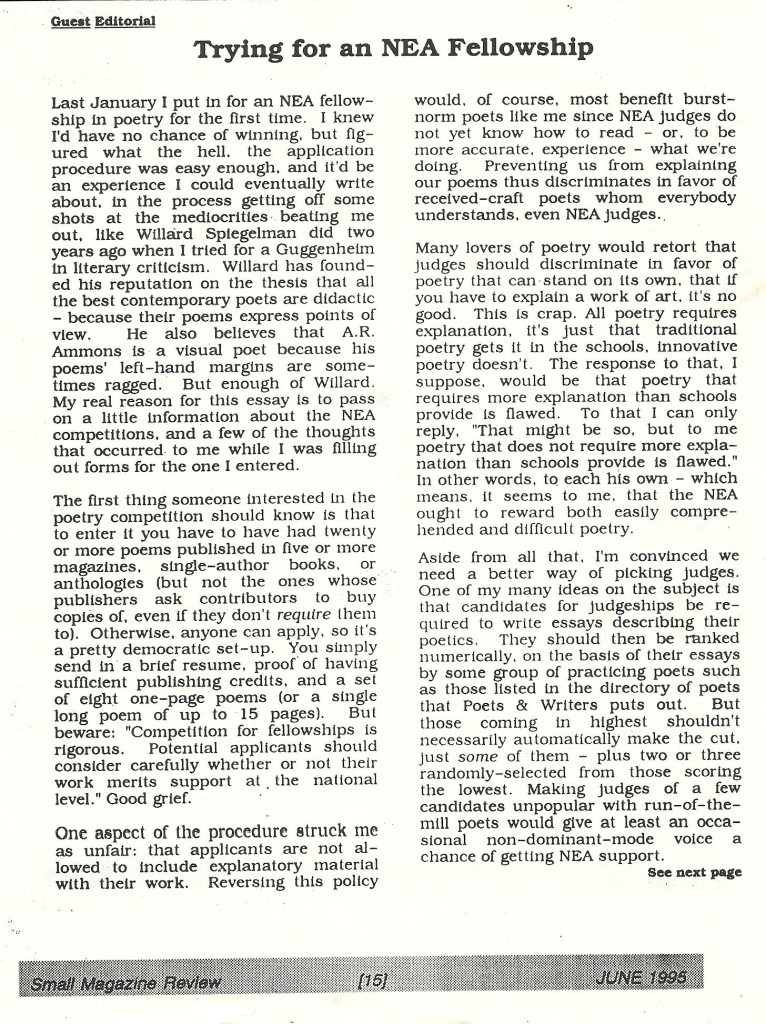
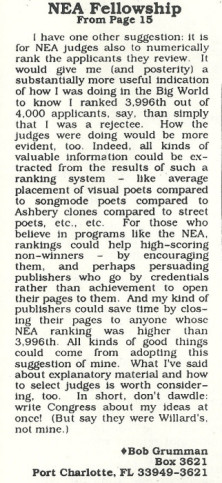
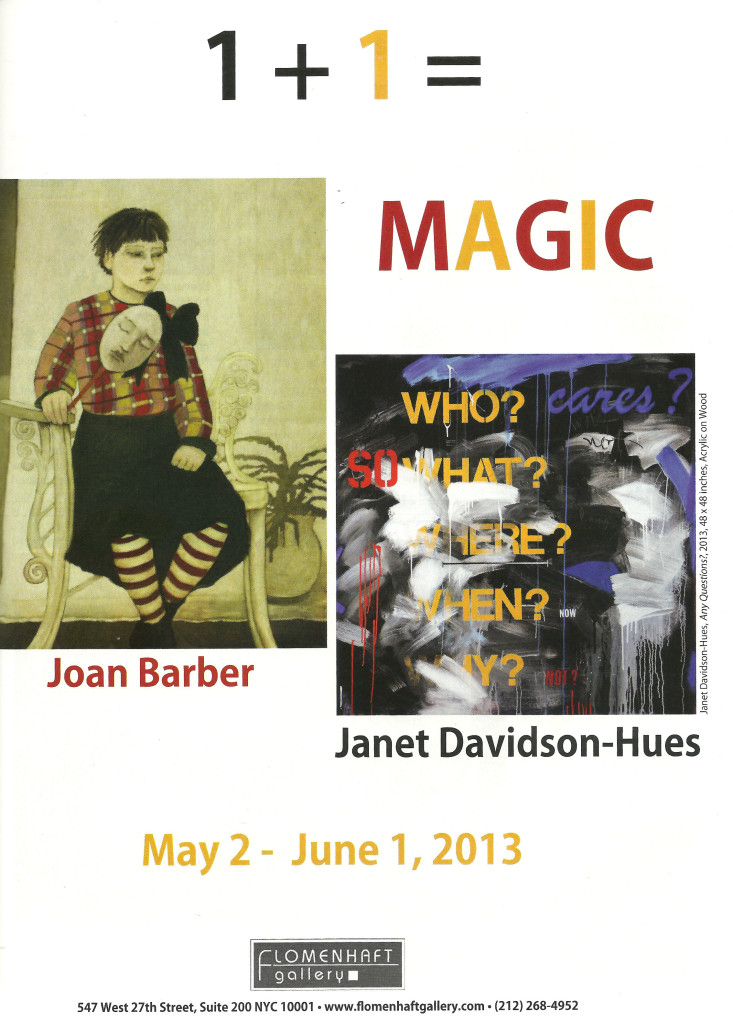
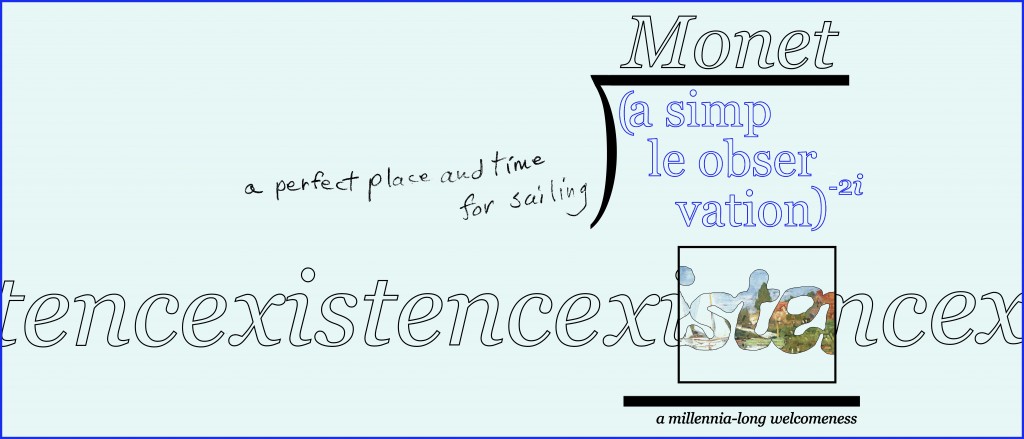
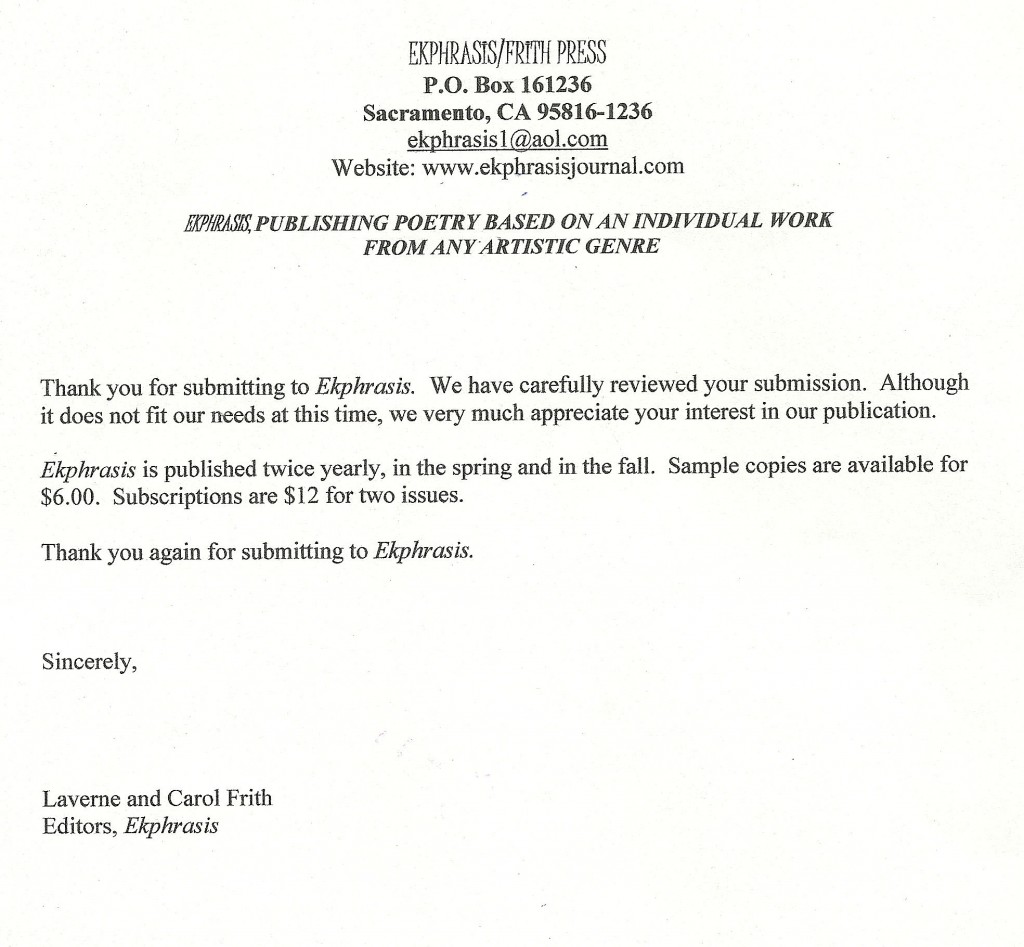 .
.